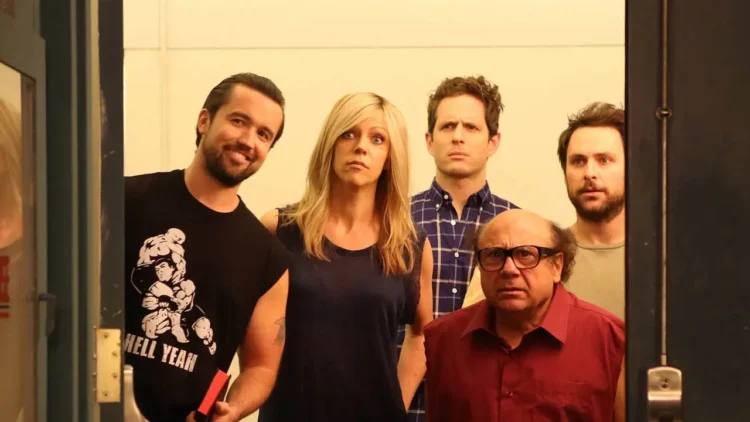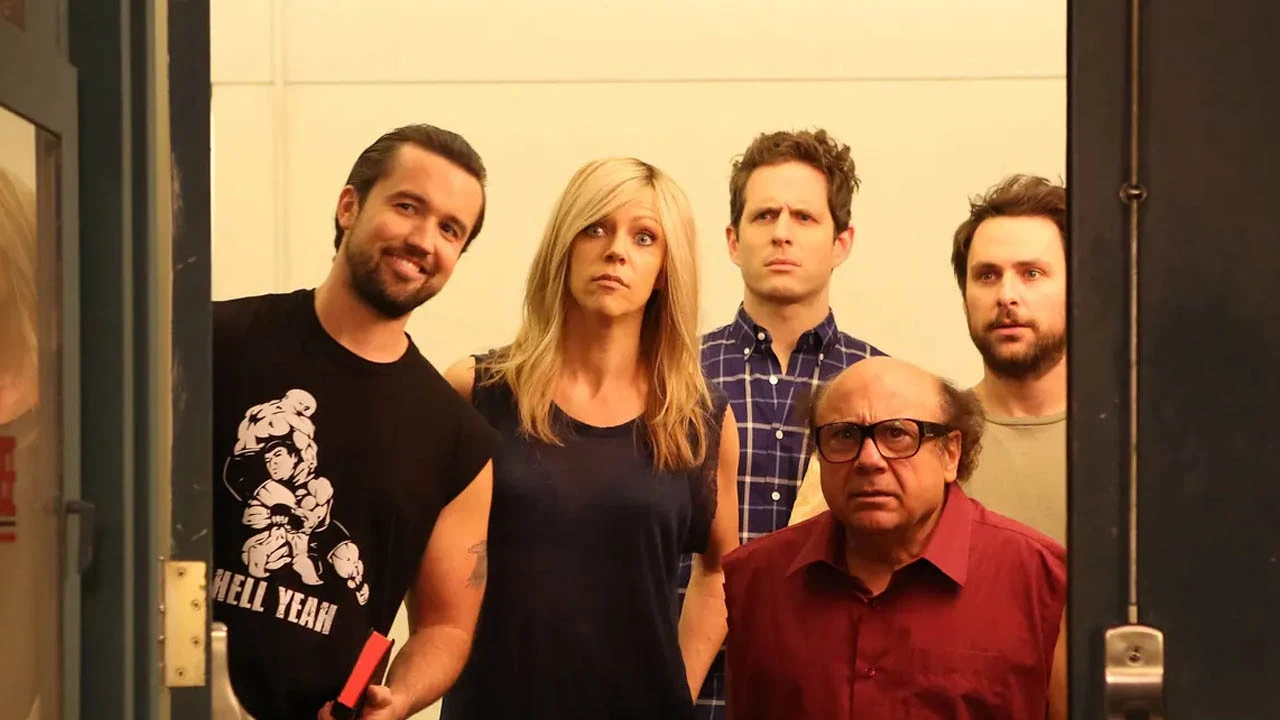For Millennials. By Millennials.
‘It’s Always Sunny in Philadelphia’ is unique. It’s not Seinfeld nor is it The Office. Neither It is any better than any of those shows, yet it is the greatest sitcom of its time. It’s the ingenious dark comedy that TV had probably craved for all these years. A marvelous sitcom, that is even after all these years highly relevant and manages to safely make us burst into laughter. Yes, this is ‘It’s Always Sunny in Philadelphia.’
The show first went on air in 2005, and now it has been 13 years since we first had it on our screens. Yet Sunny still seems just as novel and spontaneous as ever, especially if regarded in the context of the contemporary —and in many ways very dark and strange—social, economic, and political climate. What Sunny did was quirkily strange.
‘It’s Always Sunny in Philadelphia’? foresaw the impending demolition of the once-sovereign American Empire. Its five marginally employed and morally challenged characters had their lives revolving around stabbing each other in the back, attempts at gaming the system, insisting on their white privilege in vain, and feeding their own narcissism and self-interest at the expense of others.
It is generally bold for political satires to mock the country’s current political situation.

And It’s Always Sunny in Philadelphia has the kind of edge that it does this with fine grace. It showed the hardly qualified Dennis run for political office, something America can totally relate to. And several ways, Sunny has always reflected an evergreen gist. The show is; therefore, no short of iconic and legendary.
Sunny is the one show that gives us back the true essence of being average. No one, after all, is too bad, nor is anyone too good. We all lay somewhere between the line and Sunny just reinforces the same fact, just that doing that it’s terrifyingly kooky and uncannily whimsical.
Social evolution is a bona fide progressive process on It’s Always Sunny In Philadelphia. For instance, in a season 1 joke, Mac inadvertently strikes a trans woman in the face. When two bystanders threaten to beat him up for hitting a woman, he explains that “It’s a dude. She has a p****, so it’s okay.” The passersby mistake the move as a hate crime and chase Mac down to beat him black and blue.
Twelve years later, Sunny revisited the joke in the episode ‘Hero or Hate Crime’. The joke existed but the makers had revamped the hilarity in it for a more serious message, yet mainlining the deep fun it with the meditation on the power of language. Tables have turned outs,ide and in-house, Mac who was once the offender is the victim of today
It’s Always Sunny in Philadelphia because it airs on FXX, can go more mature than it could if it had aired on some ‘the main network.’
You can say the F word and say stuff as ordinary people do. There is an element of danger, something relatively rare for sitcoms, and a lot of other things that adults do but do not talk about are also there. The DIY ethos gives Sunny what allows it to stand out; everything is original. The show mostly feels like an amalgamation of several short videos made at home with a handicap, giving it its real essence.
The characters ‘The gang’, crafted to be only on sitcoms, are like snowballs of meta-comedy. Charlie, Denny, Sweet Dee, Mac, and Frank all give tragedy comedy. They are all utterly ridiculous, not something we come across in real life, and carry a masterful prowess.
When asked how long the show can go on, Rob McElhenney said:
“It’s a tricky question, but they all have similar answers. From my perspective, I can only speak for myself. If we’re still having fun, we still enjoy the process, we still think we can make fresh, creative, and different episodes, and the audience is still there, why would I ever want to stop? This is what my dream was.”
Related: Rob McElhenney & Kaitlin Olson Finally Met Lin-Manuel Miranda

